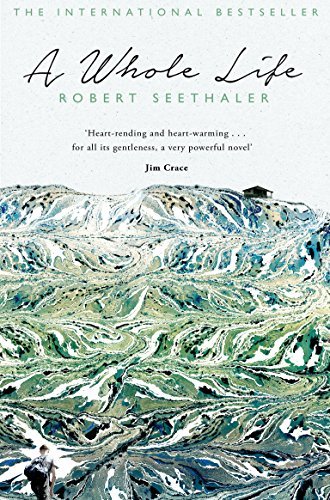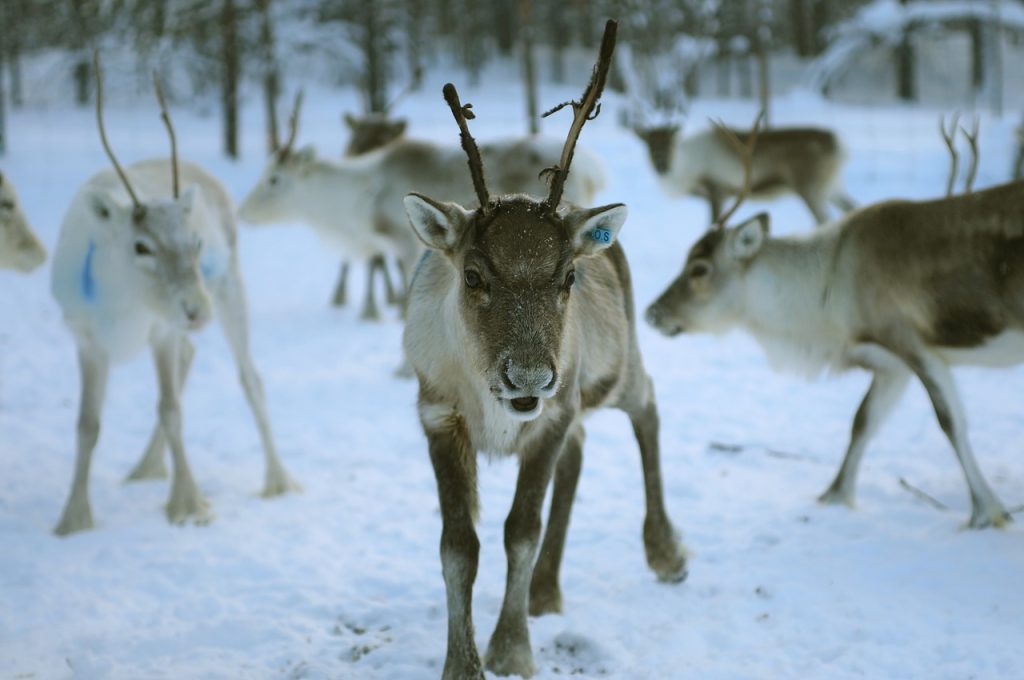In moments like these he knew that the mountains breathed
I’ve driven through Austria more than once on my way to Italy. And every time I think how I should really stay longer. Because Austria just might be one of the most beautiful places on earth. I love mountains. Being from the flat country of Denmark, the mountains have always fascinated me. And this book definitely rekindled my desire to go see the mountains again.
Can you really contain an entire life in just 100 pages? Robert Seethaler does exactly that in A Whole Life. He does it with few words, matter-of-factly and with surprising with tenderness and depth. I might not call it a five-star read for me personally, but it did leave a lasting impression.
At the center of the story is Andreas Egger, a stoic, quiet and unassuming man. The story starts with an episode in 1933, when Egger finds his elderly neighbor, a reclusive goatherd who lives in the same Austrian mountain village, feverish and barely alive. Egger attempts to carry him on his back down the mountain, but in a fit of madness due to his fever the goatherd runs off into the snow never to be seen again. Between this incident and when the petrified body is found forty years later on a mountain ledge, the book tells us the story of Egger’s whole life.
We meet him as a small child in 1902, orphaned and sent to live with his uncle’s family on a remote farm in the beautiful but harsh Austrian alps. The uncle (with the incredibly delicious German name Hubert Kranzstocker) takes pleasure in beating up the child for the slightest mistakes, to the point of breaking his bones, which leaves Egger with a crooked leg and a permanent limp.
So now here Egger stood, gazing at the mountains in wonder. This was the only image he retained of his early childhood, and he carried it with him throughout his life. There were no memories of the time before, and at some point in the years that followed, his early years on the Kranzstocker farm also dissolved in the mists of the past.
We then follow Egger, as he breaks away from this difficult childhood, and through his whole life until his death.
We see him (literally) light up the mountains for love, and we see him suffer terrible loss. We see him overcome his handicap, experience hard work and the horrors of war, when, after fighting for only a couple of months, he is captured by the Russians and lives for years in a prison camp.

And after the war we see him find a new purpose as tourists in continually larger numbers flock to the Austrian mountains. All of the time the story weaves together the grand sweep of history with the small details of Egger’s everyday life.
And Egger never complains. He takes the beating and he moves on. He finds his way and he doesn’t ask for much, but he stands up for himself when it’s needed.
Despite its brevity, A Whole Life feels weirdly expansive. Seethaler creates a vivid world and a character whose life feels both ordinary and extraordinary. It’s heartwarming and heart-wrenching in equal measure.
It is a tale of one man’s life set against the vastness of the Austrian Alps and also a history of how men strive (and fail) to bend this natural landscape to their will.
One thing I didn’t expect from this book was a quite fascinating insight into the development of Austria’s cable car systems. As someone who has often admired those feats of engineering this added layer of historical detail felt like a little gift.
“Sometimes, on mild summer nights, he would spread a blanket somewhere on a freshly mown meadow, lie on his back and look up at the starry sky. Then he would think about his future, which extended infinitely before him, precisely because he expected nothing of it. And sometimes, if he lay there long enough, he had the impression that beneath his back the earth was softly rising and falling, and in moments like these he knew that the mountains breathed.”
The book captures both the harshness and the beauty of existence. It is a reflection on the resilience of the human spirit in the face of tragedy and inevitable change. It is a story that reminds you how much beauty can be found in simplicity, both in life and in storytelling, and for this it was shortlisted for the International Booker prize in 2016.
And if, like me, you love mountains, it will likely reignite that love. So now if you’ll excuse me, I have to go look up summer holidays in Austria. Preferably somewhere with cable cars …
Quiet small town life is not your thing? Check out my other suggestions for Austria here!




